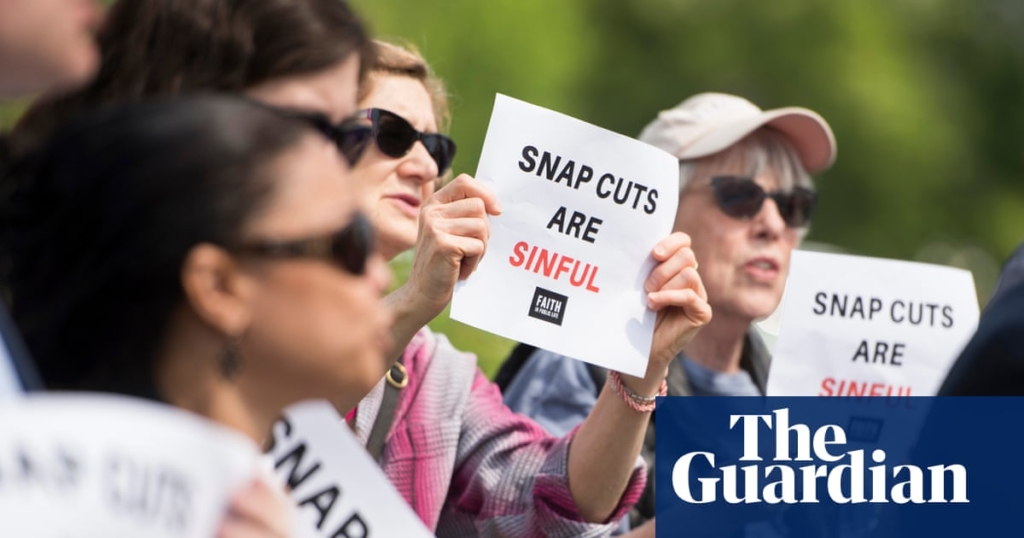As they prepare to take control of the White House and Congress next month, conservatives are eyeing cutbacks to federal programs that help tens of millions of women pay for healthcare, food, housing and transportation.
Slashing or overhauling social support programs, long a goal of Republican lawmakers, could be catastrophic for women experiencing poverty. Supporters contend the social safety-net programs are already grossly underfunded.
“With this new administration that is coming in … I really am concerned about the lives of women. We are seeing so many policies, so many budget cuts,” said Christian Nunes, president of the National Organization for Women.
Republicans say they want to keep campaign promises to cut government spending, and three major programs make easy targets: Medicaid, the joint state/federal health insurance program for people with lower incomes; Temporary Assistance for Needy Families (TANF), a cash-allowance program that replaced welfare; and the Supplemental Nutrition Assistance Program (Snap), widely known as food stamps.
While conservatives frame cuts as making government more efficient and even restoring freedom, advocates for and experts on families with little or no income say reducing these programs will throw more people – especially women and children – further into poverty.
“It is going to fall heavily on women,” said Elaine Waxman, a senior fellow in the Income and Benefits Policy Center at the Urban Institute, a non-profit research organization.
Predicting precisely what Republicans in Congress and the Trump administration will do is difficult. Congressional leaders are close-mouthed about negotiations, and the president-elect has not finished putting together his advisory team. None of the spokespeople contacted for this story returned calls or e-mails.
But organizations known to advise top leaders in Congress and the previous Trump administration have laid out fairly detailed roadmaps.
Project 2025, the conservative Heritage Foundation’s blueprint for the incoming administration, denies its proposed changes will harm women, saying instead that marriage and “family values” will improve their economic situations. “Marriage, healthy family formation, and delaying sex to prevent pregnancy are virtually ignored in terms of priorities, yet these goals can reverse the cycle of poverty in meaningful ways,” reads the section on proposed changes to TANF and Snap.
Numerous other groups that have studied the problem say forcing or even encouraging marriage will not make poverty disappear. And a recent study by a team at the University of South Carolina found that when state laws make it harder for pregnant women to get divorced, they’re more likely to be killed by their partners.
Trump has promised not to attack the two most expensive and popular government programs: social security and Medicare. But he and Congress are up against a deadline to extend his 2017 tax reforms, which raised the federal deficit. They’ll have to cut something, and social spending programs, especially the $805bn Medicaid program, are low-hanging fruit for conservatives.
Trump repeatedly tried to slash Snap during his last tenure in office: his 2021 budget proposal would have cut the program by more than $180bn – nearly 30% – over 10 years. Conservatives in Congress have continued these efforts and, with majorities in the House and Senate, they may be able to get them through next year.
The Republican Study Committee, whose members include about three-quarters of the House Republican caucus, recommends more work requirements for Snap and TANF.
“SNAP and our welfare system should embrace that work conveys dignity and self-sustainment and encourage individuals to find gainful employment, not reward them for staying at home,” their plan, released in March, reads.
A large body of research questions whether widening work requirements does anything other than force people off benefits without helping them find employment. “I think there is a misperception that people in need of help are not working,” said Mei Powers, chief development and communications officer at Martha’s Table, a non-profit aid organization in Washington DC. “People are a paycheck, a crisis, a broken-down car away from needing services.”
Snap currently helps 41 million people buy groceries and other necessities every month. Women accounted for more than 55% of people under 65 receiving Snap benefits in 2022, according to the National Women’s Law Center, a gender justice advocacy group. About one-third of them were women of color, the NWLC said.
Among other things, cutting these programs will trap women in dangerous situations, the NWLC said: “SNAP helps survivors of domestic violence and sexual assault establish basic economic security.”
TANF, which provides cash assistance, overwhelmingly benefits women. In 2022, 370,000 TANF adult recipients were female and 69,000 were male, according to the Department of Health and Human Services.
Perhaps Medicaid is the most tempting target for conservatives because they can use it to undermine the Affordable Care Act, also known as Obamacare. The GOP has been gunning for the ACA since it was signed into law without a single Republican vote in 2010.
The federal government shares the cost of Medicaid with states. The ACA aimed to make Medicaid cover more people by offering to pay for virtually all the extra costs. Many Republican-led states resisted for years, but as of November, all but 10 states had expanded coverage to an extra 21 million people, or about a quarter of all Medicaid recipients.
Medicaid pays for more than 40% of births in the US, plus it covers new mothers for post-pregnancy-related issues for 60 days. It also pays for medical care for 60% of all nursing home residents, more than 70% of whom are women.
According to the health research organization KFF, expanding Medicaid helped improve care for women before and during pregnancy and after they gave birth.
But most Republicans in Congress have never approved of this federal spending. Proposed cuts to Medicaid funding, which would save hundreds of billions of dollars, are laid out by the Paragon Health Institute, a conservative health thinktank headed by Brian Blase, a top health adviser to the first Trump administration.
Experts predict states would be unable or unwilling to make up the difference. “Facing such drastic reductions in federal Medicaid funding, states will have no choice but to institute truly draconian cuts to eligibility, benefits and provider reimbursement rates,” Edwin Park, research professor at Georgetown University, wrote in an analysis.
That would mean women, children, older adults and people with disabilities would lose coverage as facilities closed and providers stopped seeing patients.
The effects, says the National Organization for Women, “will be widespread, devastating, and long-lasting”.
This story is published in partnership with the Fuller Project, a non-profit newsroom dedicated to the coverage of women’s issues around the world. Sign up for the Fuller Project’s newsletter.







Yorumlar kapalı.